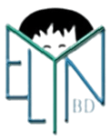Pronoun - সর্বনাম
সাধারণত যে শব্দটি Noun-এর পরিবর্তে বসে বা Noun-কে নির্দেশ করতে ব্যবহার করা হয় তাকে Pronoun বা সর্বনাম বলে। আরও সহজভাবে বলা যায় যে, Pronoun হল এমন একটি শব্দ যা Noun-এর পরিবর্তে Noun-এর জায়গায় বসে।
A pronoun is a word that takes the place of a noun. Generally, (but not always) pronouns stand for (pro + noun) or refer to a noun. সাধারণত একই Noun -এর পুনরাবৃত্তি এড়াতে Pronoun ব্যবহার করা হয়। যেমনঃ
করিম গান গায়। Karim sings.
করিম একটি কলম কিনেছে। Karim has bought a pen.
করিম রিনাকে পছন্দ করে। Karim likes Rina.
মিনা করিমকে পছন্দ করে। Meena likes Karim.
উপরের বাক্যগুলোতে ‘করিম’ শব্দটি বারবার ব্যবহার না করে, আমরা নিম্নোক্তভাবে বাক্যগুলো বলতে পারিঃ
করিম গান গায়। Karim sings.
সে একটি কলম কিনেছে। He has bought a pen.
সে রিনাকে পছন্দ করে। He likes Rina.
মিনা তাকে পছন্দ করে। Meena likes him.
এখানে ‘করিম’ এর পরিবর্তে ‘সে’ এবং ‘করিমকে’ বোঝাতে ‘তাকে’ ব্যবহার করা হয়েছে। লক্ষ্য করুন যে, প্রথমে অবশ্যই করিম সম্পর্কে উল্লেখ করা হয়েছে; তারপর যেহেতু করিম দ্বারা ছেলে বা পুরুষদের বোঝায়, তাই ‘করিম’ এর পরিবর্তে ‘সে = He’ এবং ‘করিমকে’ বোঝাতে ‘তাকে = him’ ব্যবহার করা হয়েছে। তাই এখানে He, him (‘সে’, ‘তাকে’) হলো Pronoun বা সর্বনাম যারা কিনা একটি Noun-এর জায়গায় বা Noun-এর পরিবর্তে বসেছে বা Noun-টিকে নির্দেশ করতে বসেছে। আর সেই Noun-টি হল Karim।
Pronoun যে Noun-টি কে নির্দেশ করে বা উল্লেখ করে, সেই Noun-টি কে Pronoun এর Antecedent বা পূর্বপদ বলা হয়। যেমনঃ
Karim sings, and so he is a singer.
অর্থাৎ এখানে ‘he’ দ্বারা Karim কে নির্দেশ করা হচ্ছে। আর তাই Karim হল ‘he’ এর Antecedent বা পূর্বপদ।
তবে কিছু কিছু Pronoun-এর কোন Antecedent বা পূর্বপদ থাকে না। যেমনঃ
Everyone has come here.
Everybody is happy.
Somebody called me.
Nobody believes a liar.
Something happened to him.
অর্থাৎ Everyone, Everybody, Somebody, Nobody, Something, Anything, Nothing ইত্যাদি এ সকল Pronoun-এর কোন Antecedent বা পূর্বপদ থাকে না।
There are eight types of pronouns found in traditional grammar. প্রচলিত ব্যাকরণে আট ধরনের সর্বনাম পাওয়া যায়।
Personal Pronoun বা ব্যক্তিগত বা ব্যক্তিবাচক সর্বনাম:
I, we, he, she, they
Demonstrative Pronoun বা ব্যাখামুলক বা নির্দেশক সর্বনাম:
this, that, those
Indefinite Pronoun বা অনির্দিষ্ট সর্বনাম:
any, many, some, few
Interrogative Pronoun বা প্রশ্নবোধক বা প্রশ্নসূচক সর্বনাম: এই Pronoun গুলো প্রশ্ন করতে ব্যবহার করা হয়। যেমনঃ
who, which, what, whom
Relative Pronoun বা সম্মন্ধসুচক বা সম্পর্কনির্দেসক বা সাপেক্ষ সর্বনাম:
who, which, what, whom, that
Reflexive Pronoun বা আত্মবাচক সর্বনাম:
myself, yourself, herself
Reciprocal Pronoun বা পারস্পারিক বা পরিপূরক সর্বনাম:
each other, one another
Distributive Pronoun বা বিতরণ সম্পর্কিত সর্বনাম:
each, every, either, neither
Check Your Understanding: Pronoun
Which of the following is a personal pronoun?
Identify the demonstrative pronoun in the sentence:
Those are my favorite books.
What type of pronoun is "Nobody" in the sentence: "Nobody came to the party."
Which of the following is an interrogative pronoun?
Identify the reflexive pronoun in the sentence:
She completed the project herself.
What is the reciprocal pronoun in the sentence: "The two friends helped each other."
Which pronoun is distributive?
What type of pronoun is "Who" in the sentence: "The boy who won the race is my brother."
What is the antecedent of the pronoun "he" in the sentence: "Karim is singing, and he is happy."
Which of the following is an indefinite pronoun?
